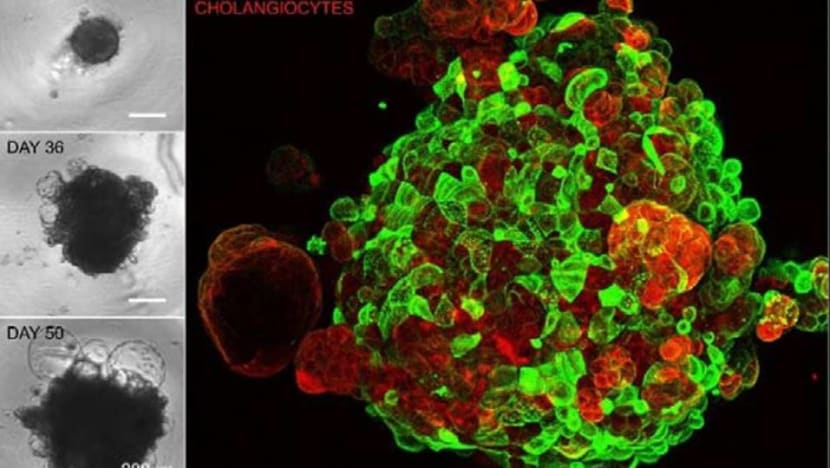Singapore scientists take major step in finding new therapies for non-alcoholic fatty liver disease

Singapore scientists grow liver organoids in a dish that mimics the complex structural features of a human liver organ. (Photo: A*STAR’s Genome Institute of Singapore)
SINGAPORE: Singapore scientists have taken a major step towards devising better therapies for liver diseases after creating human liver organoids that are able to replicate structural changes during liver injuries.
The organoids – grown from stem cells in a laboratory – capture both the functional and structural features of the liver.
“The research will help scientists to better understand liver biology and how liver diseases develop, and facilitate the development of novel therapies,” said A*STAR's Genome Institute of Singapore (GIS) in a media release on Wednesday (Jul 15).
A long-term research collaboration between GIS and the National University of Singapore (NUS), the first-in-class liver organoids will help scientists and doctors better understand how diseases – such as non-alcoholic fatty liver disease – affect the liver.
Non-alcoholic fatty liver disease affects up to a third of the adult Singapore population, and more than 25 per cent of adults around the world.
It is characterised by the building up of fat in the livers of people who consume little to no alcohol, and is often associated with obesity and type 2 diabetes.
“There are currently no approved therapies for it, and the first-line treatment recommendations are dietary and lifestyle changes, due to the disease’s close association with obesity,” the GIS said.
Research on new therapeutics for the disease has been hampered by the lack of a relevant human disease model.
Scientists need more advanced human cellular models to capture both the molecular and structural changes of the liver as the disease progresses.
The new advanced liver organoids will help replicate how the disease affects human livers. It can also be used to model other complex liver diseases, including those caused by drugs.
“This will help scientists to better understand how NAFLD patients develop liver injuries and to devise better therapeutic strategies in the future,” the institute said.
Professor Ng Huck Hui, senior group leader at GIS, said: “The increase in prevalence of liver disease and the lack of therapeutics place a huge burden on healthcare systems worldwide.
“There is a dire need to better understand liver biology in order to develop advanced cellular models of disease, and novel therapies.”
Associate Professor Dan Yock Young of NUS’ Yong Loo Lin School of Medicine said patients with early-stage non-alcoholic fatty liver disease remain “largely asymptomatic” and that the disease progresses silently over the years.
“What drives the disease progression and liver injury remains largely unknown. The development of advanced human liver models of the disease will provide a critical tool for researchers to identify molecular drivers of the disease,” he added.














